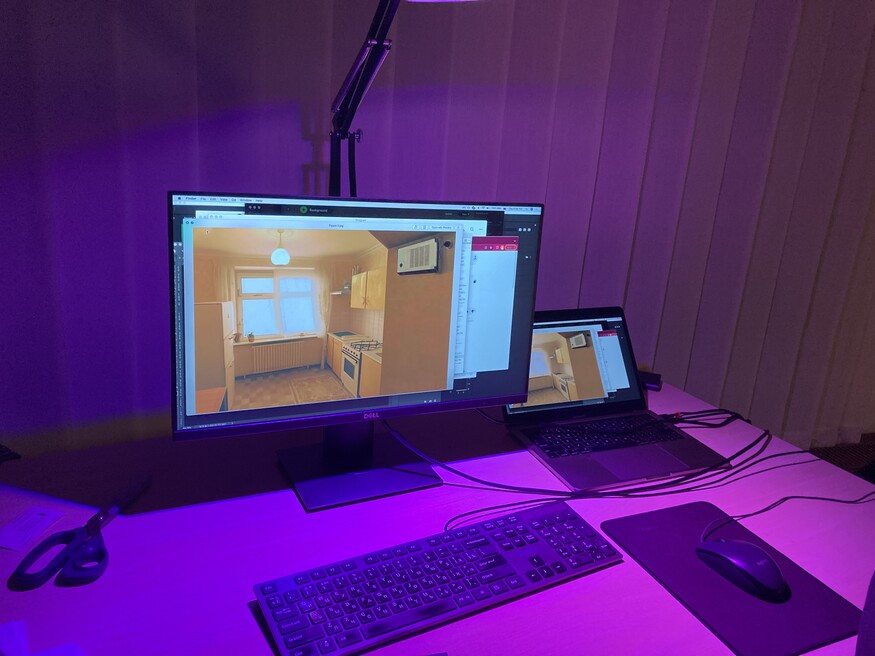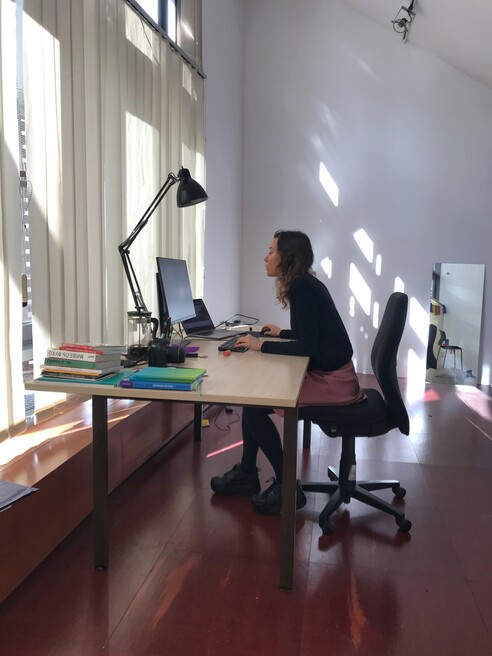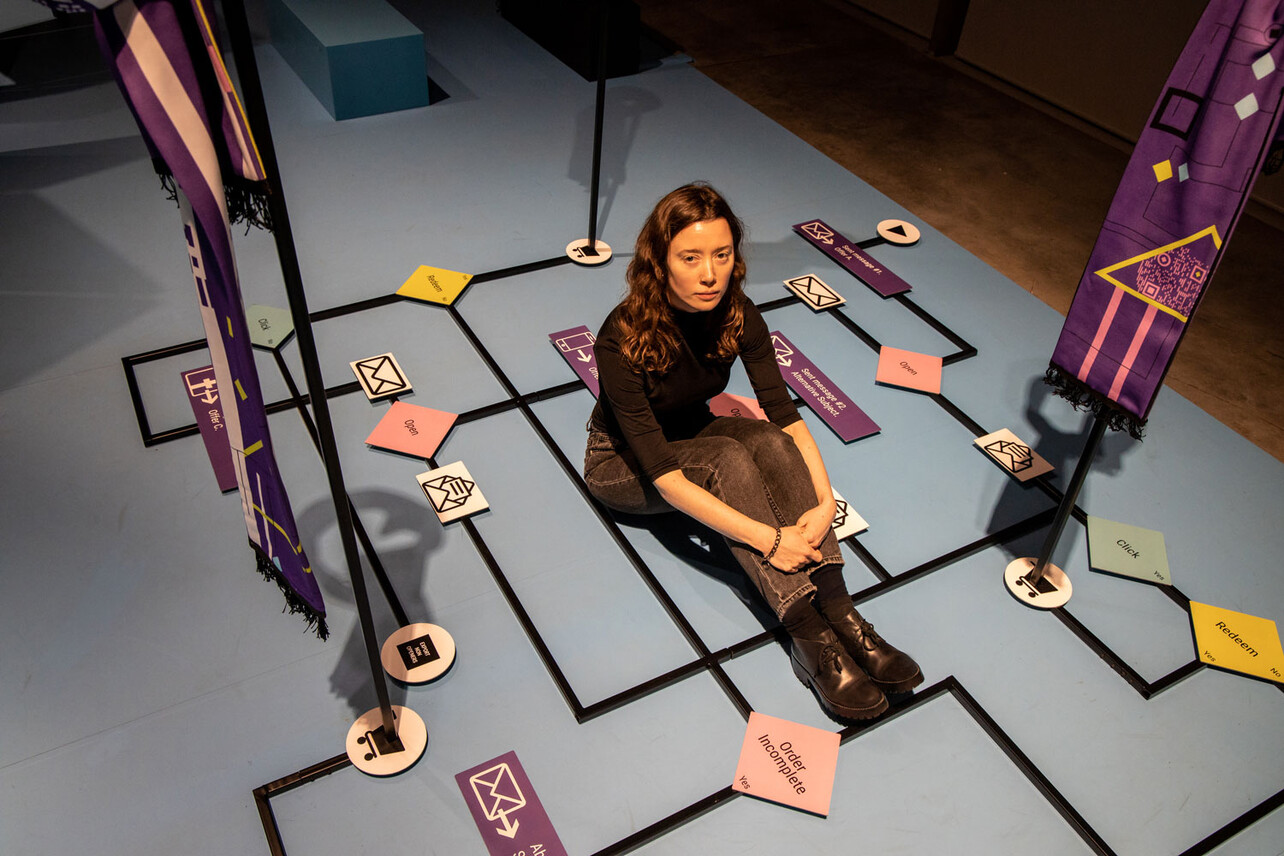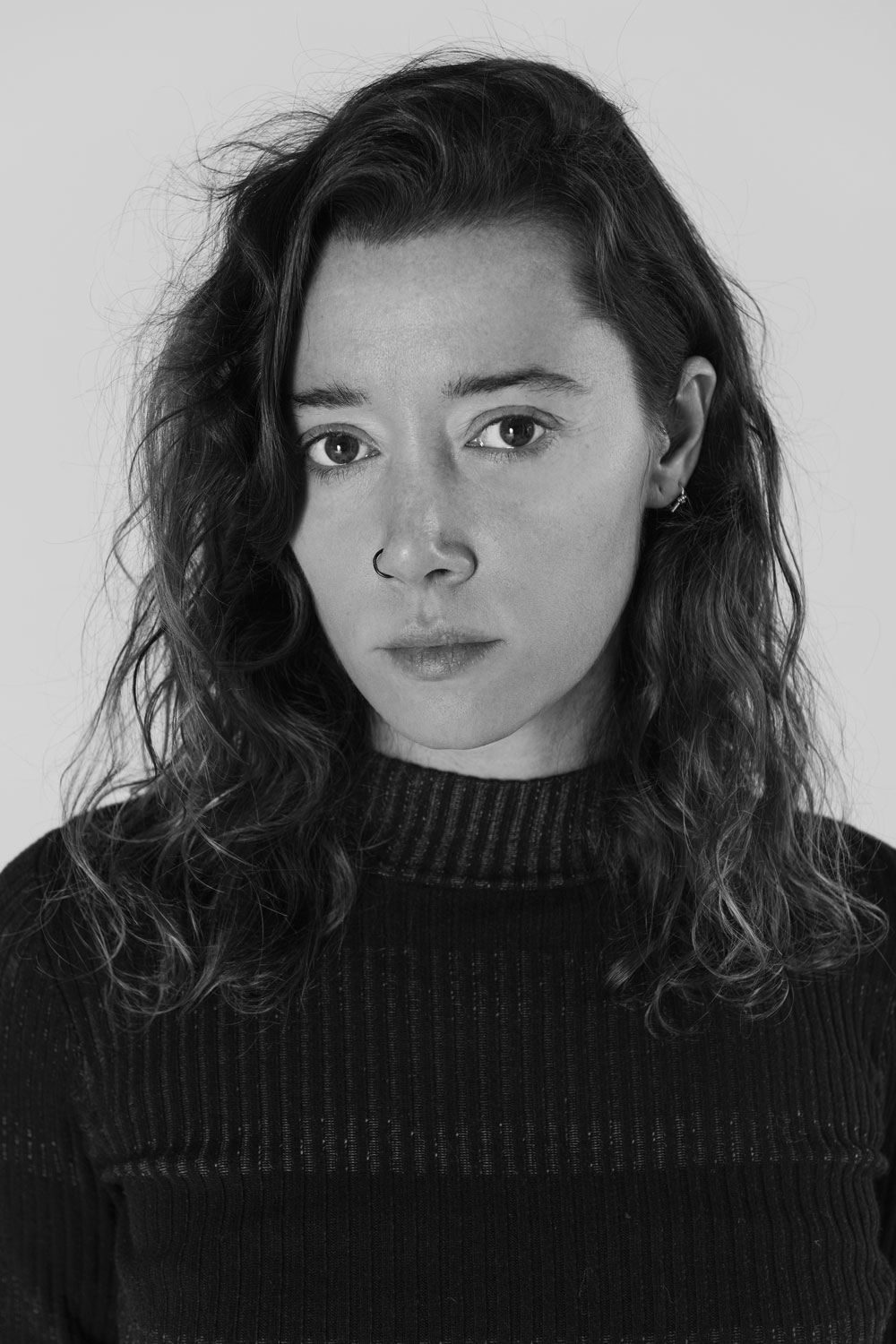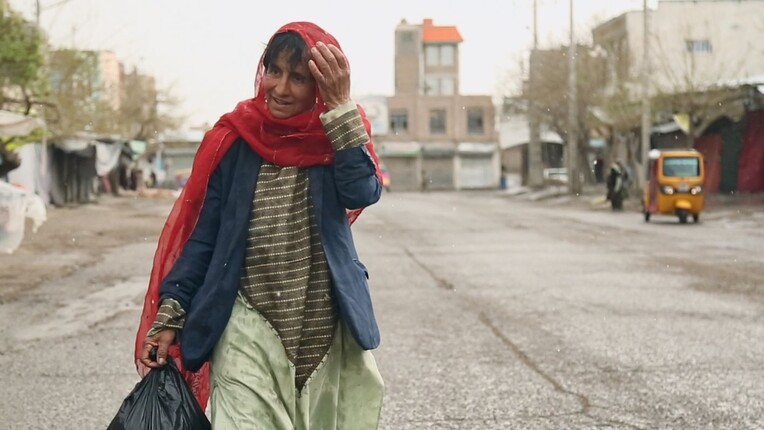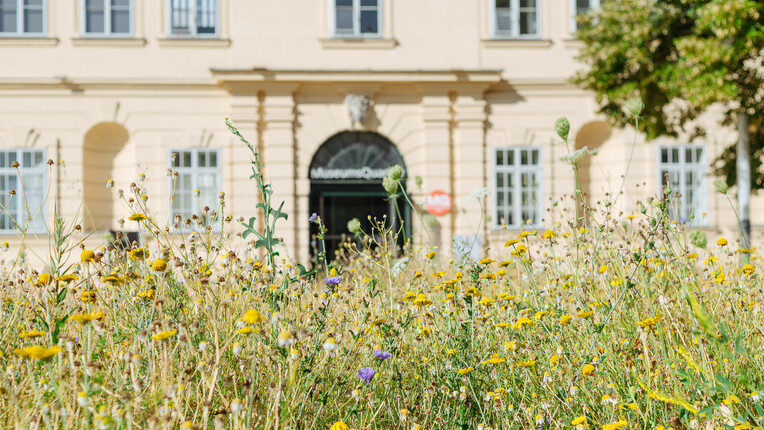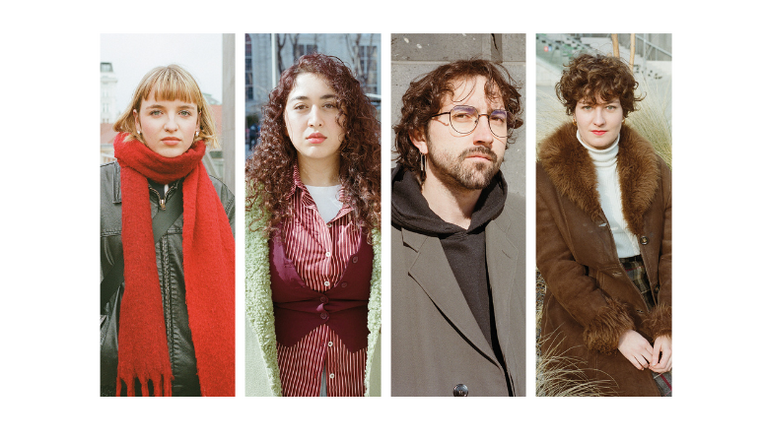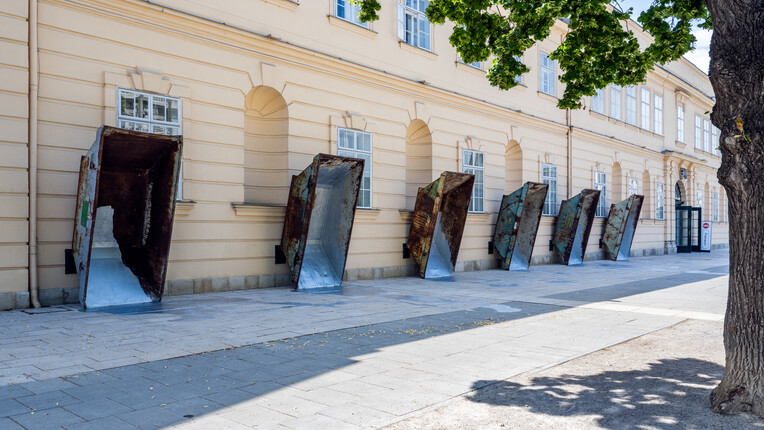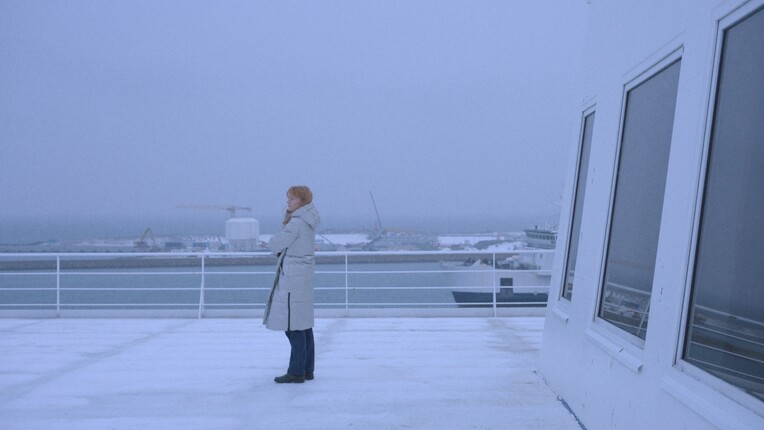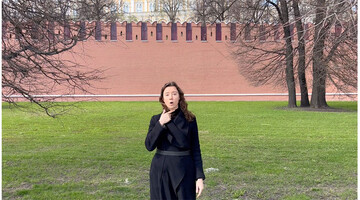
Interview with Artist-in-Residence Tatiana Sukhareva
Tatiana Sukhareva is Artist-in-Residence at MQ from January to March 2023 in cooperation with the BMEIA.
Tatiana Sukhareva is a contemporary artist who lived and worked in Moscow until May 2022. In her recent works she is exploring themes of biopolitics, power relations and the influence of manipulation on public consciousness. Her personal synesthetic experience of grapheme-color synesthesia is also an important part of her practice.
Tatiana, what projects have you been dedicating your time to in Vienna?
I have been working on a video essay as part of my larger project, "Inhuman Design," which I started in 2019. These works delve into the manipulations of human consciousness, investigating how power relations cause mutations that impact entire generations. This process results in the modeling of both biological and social bodies, hence the name "Inhuman Design."
In this video essay, I examine how media can become an extension of one's body. I've titled the essay "Bicameral Mind." Bicameral mentality is a hypothesis in psychology and neuroscience which argues that the human mind 3000 years ago operated in a state in which cognitive functions were divided between one part of the brain which appears to be "speaking", and a second part which listens and obeys. I refer to the concept and use it as a metaphor.
I illustrated it with a situation from my childhood home, where a radio constantly broadcasted only one state station “Radio of Russia”. It was challenging to turn off due to my parents' disapproval and its position high up, right under the ceiling. The broadcast began at 6 am and continued until midnight, making the radio not only the single constant source of information but also the dictator of biorhythms and a kind of extension of one's body. This situation persists in the house where I was born, but I no longer live there. In my studies, I researched various manipulation techniques, one of which is repetition, often used in propaganda. My experiences taught me that this repetition leads to the earworm effect, which persists even after leaving the house. This creates a metaphor of a bicameral mind where a voice tells you what to do. In my work, I also reference Richard Dawkins' concept of the selfish meme: "When you plant a fertile meme in my mind, you literally parasitize my brain, turning it into a vehicle for the meme's propagation, just as a virus may parasitize the genetic mechanism of a host cell."
What I do in the “Inhuman design” project, I call rivers-engineering the system - deconstructing its components to better understand how it works and its mechanics. I identify and analyze the prerequisites and manipulations that led to the current situation. Currently, I'm editing scenes for the video essay. Given that I cannot return to Russia, I am using reconstruction techniques such as 3D animation and video collage, as well as Google Maps. In the beginning of the essay, I reconstructed my journey from Smolensk, my birthplace, from the railway station to my childhood home using Google Maps street view. In fact, this is now my only way to “return home”.
Among other projects, you mentioned an interesting collaboration with Olga Ramanava?
Yes, it was a collaboration. Olga Ramanava is a writer and researcher from Belarus. The outcome of our project was a performative dialogue. We juxtaposed Russian and Belarusian contexts to analyze "What happens to your personality when you find yourself in the face of violence and dictatorship?" The project was based on several free-writing sessions. We worked every day for a week using this method, writing and then asking each other questions. It was a kind of work with our subconsciousness. For me, these sessions turned out to be more powerful than going to a therapist. All the pain and unspoken emotions that had turned into psychosomatics began to come out. I was crying. It produced surprising results for both me and Olga.
You left Russia in May 2022 because of your anti-war performance in Moscow. Did you come to Austria directly?
I came by train from Italy because I visited the Venice Biennale. I was supposed to be in Vienna for 1-2 weeks; I didn't know I would stay here longer. Later, I took part in an exhibition in Vienna in July. I left the EU at the end of July as my visa expired. I came back in January to this residence for three months; MuseumsQuartier and the Austrian Foreign Ministry invited me.
Now you are in Vienna. Have you connected to the Russian art scene in Vienna at all? Is it active?
Actually, yes. I know people from different places or institutions that are from Russia.
Have you been able to connect with artists in AT? Have you met interesting Austrian artists?
Vienna is a very hospitable place, and yes, there are many inspiring artists here. I feel safe and cozy here. Now, I feel that Vienna is a really good place to recharge your batteries and find the strength to resist. When you leave Russia, finally, you can speak up again. You can engage in digital partisan activities. It is very important to feel safe and to have a community and good people around you.
